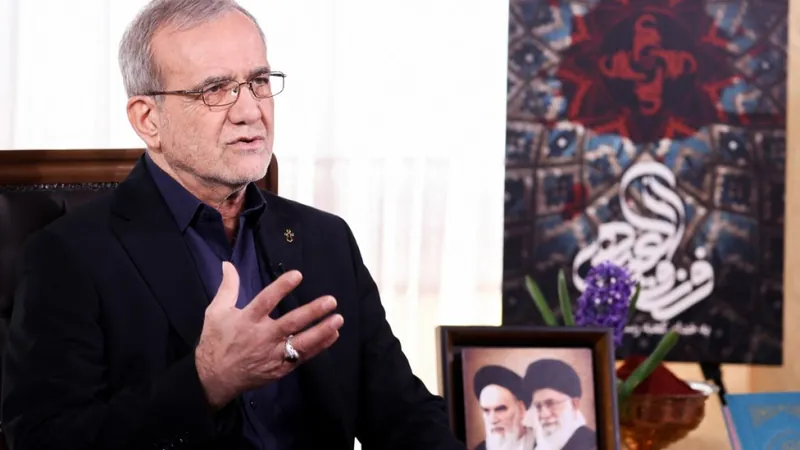
Iran Dismisses Direct Nuclear Talks with Trump, Open to Dialogue Through Intermediaries
2025-03-30
Author: Charlotte
Iran's Rejection of Direct Talks with Trump
In a significant statement, Iranian President Masoud Pezeshkian has decisively rejected the prospect of direct negotiations with the Trump administration regarding Iran's nuclear program. Instead, he has expressed a willingness to consider indirect discussions facilitated by third parties. This comes amidst rising tensions, as President Trump has threatened military action and the imposition of secondary tariffs should Iran fail to reach an agreement with the United States.
Pezeshkian's Position
During a cabinet meeting in Tehran, Pezeshkian disclosed, "We responded to the US president’s letter via Oman and rejected the option of direct talks, but we are open to indirect negotiations." He emphasized that while Iran is not fundamentally opposed to negotiating, the U.S. must first make amends for its previous actions that have led to distrust.
Trump's Combative Rhetoric
Trump's rhetoric has intensified, warning in a recent NBC interview, "If they don’t make a deal, there will be bombing." He also hinted that if an agreement is not reached, he may impose tariffs similar to those enacted four years earlier. This combative stance underscores the precarious nature of current relations between the two nations.
Expert Opinions
Experts suggest that Iran’s skepticism is well-founded, particularly considering Trump's past actions, such as withdrawing from the 2015 nuclear deal that had initially offered the country relief from sanctions in exchange for curbs on nuclear activities. Barbara Slavin, a fellow at the Stimson Center and a lecturer in international affairs, noted the Iranian fears regarding ongoing U.S. sanctions that have severely impacted their economy, leading to a dramatic depreciation of the Iranian currency, high inflation, and rising unemployment.
U.S. Military Movements
Slavin also pointed out recent U.S. military movements, including the positioning of additional bombers in Diego Garcia and a new aircraft carrier entering the region, which may be a preparation for potential military action should diplomatic efforts fail.
Khamenei's Rejection of Ultimatum
Earlier in March, Trump sent a letter to Iran's Supreme Leader Ayatollah Ali Khamenei, explicitly stating that Iran must engage in negotiations or face military consequences. Khamenei rejected this ultimatum, reiterating that Iran would only negotiate through intermediaries.
Iran's Nuclear Intentions
Iran maintains that its nuclear program is solely intended for civilian energy purposes. However, since the U.S. withdrawal from the nuclear agreement in 2018 and the subsequent reimposition of sweeping sanctions, Iran has accumulated significant fissile material, enough for multiple nuclear weapons, according to the International Atomic Energy Agency (IAEA). Nonetheless, Iran has not pursued the construction of any devices, framing its activities as peaceful.
The Path to Negotiations
As observers highlight the dire economic circumstances facing Iran, they warn that meaningful negotiations with the U.S. may be the only pathway to alleviating the crippling impact of sanctions. Kamal Kharrazi, an adviser to Khamenei, has asserted that Tehran has "not closed all doors" to negotiations, indicating a complex diplomatic landscape ahead.
Conclusion
Stay tuned as this story develops, highlighting the tension between diplomacy and military action in one of the most volatile regions in the world. Don't miss any updates on this high-stakes geopolitical situation!
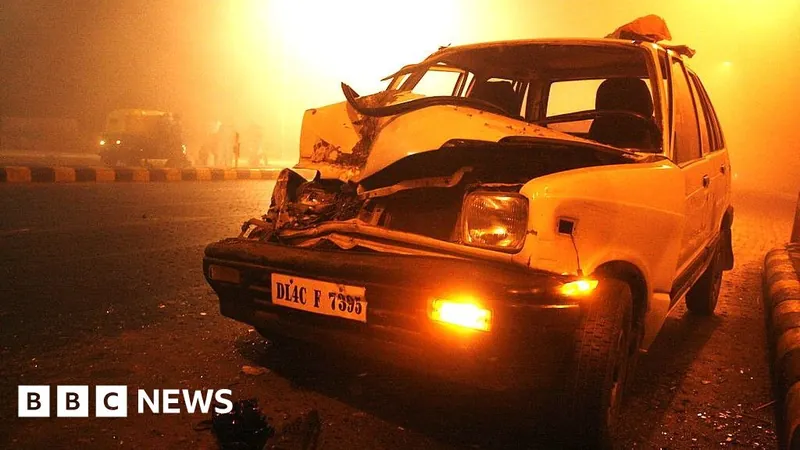
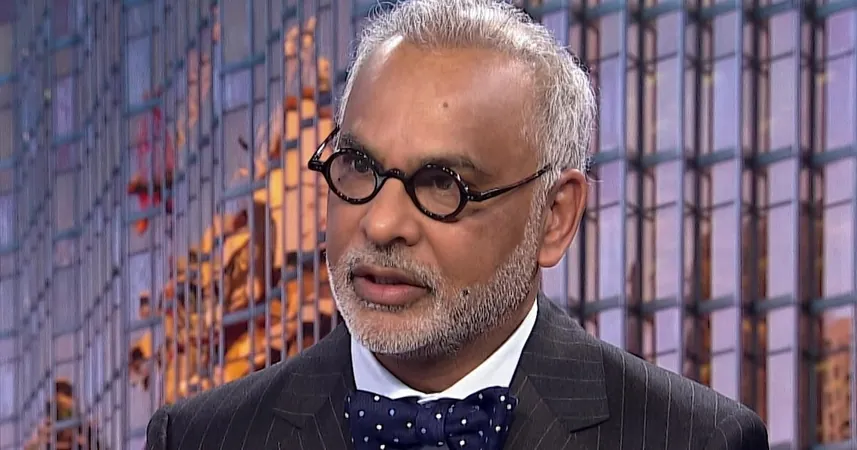





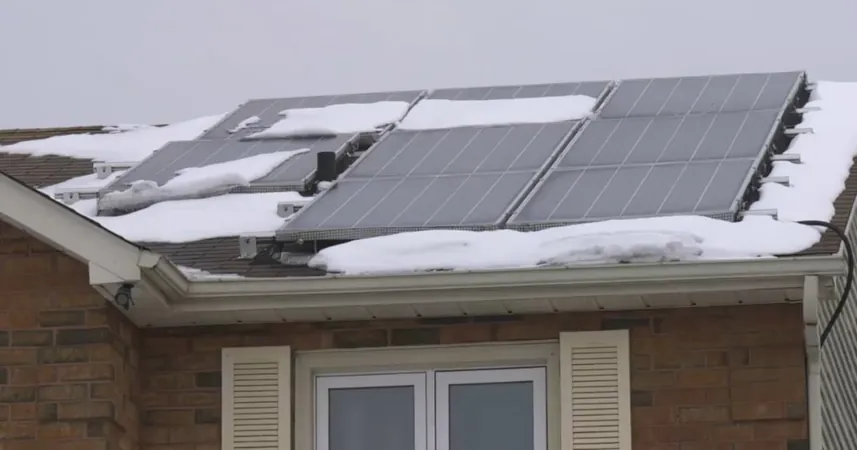
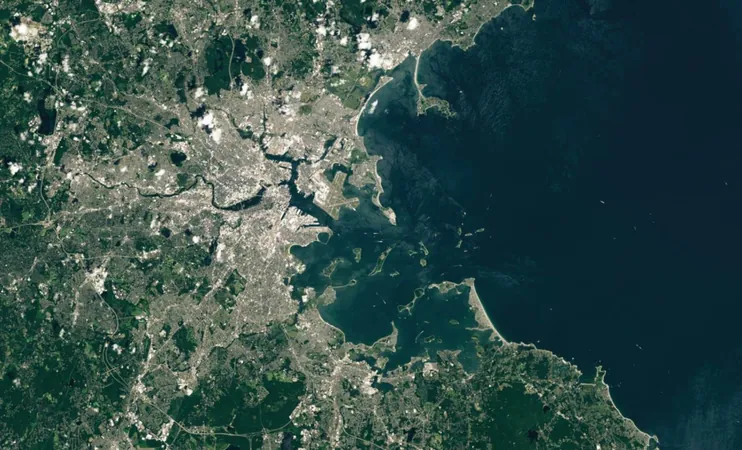
 Brasil (PT)
Brasil (PT)
 Canada (EN)
Canada (EN)
 Chile (ES)
Chile (ES)
 Česko (CS)
Česko (CS)
 대한민국 (KO)
대한민국 (KO)
 España (ES)
España (ES)
 France (FR)
France (FR)
 Hong Kong (EN)
Hong Kong (EN)
 Italia (IT)
Italia (IT)
 日本 (JA)
日本 (JA)
 Magyarország (HU)
Magyarország (HU)
 Norge (NO)
Norge (NO)
 Polska (PL)
Polska (PL)
 Schweiz (DE)
Schweiz (DE)
 Singapore (EN)
Singapore (EN)
 Sverige (SV)
Sverige (SV)
 Suomi (FI)
Suomi (FI)
 Türkiye (TR)
Türkiye (TR)
 الإمارات العربية المتحدة (AR)
الإمارات العربية المتحدة (AR)